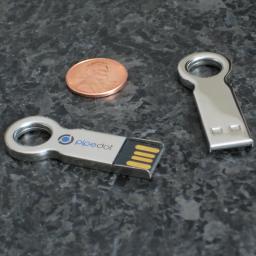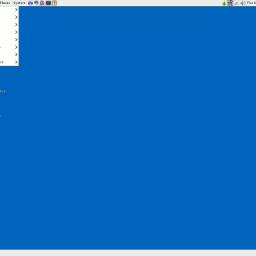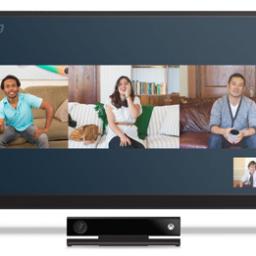
Gone are the days of presidents with a rotary dial "
Big Red Phone " on their desk over which they can quickly negotiate to avoid nuclear Armageddon (
that phone was a myth , by the way). These days, phones are mobile, and though some world leaders carry a cellphone,
not every world leader has the same appreciation for tech .
Barack Obama's
love for his Blackberry is well documented, and former US Secretary of State Hillary Clinton even found herself the subject of a meme, "
Texts from Hillary ." But Benjamin Netanyahu
has no love for the culture of cellphones and picture sharing , exclaiming, "I'm the only one here without all these electronic devices, I'm a free man, and you all are slaves!"
Lastly, although the hermetically-sealed North Korea has until recently been mostly devoid of Internet and cellphone tech, Kim Jong Un is
preparing a state-sponsored cellphone for the North Korean people , that runs a severely locked down version of Android.
Do world leaders - or any kind of leaders - need a cellphone in their pocket? Is it a liability or a way to stay connected? Is it time for the politically powerful to get with the modern age? Or should they have assistants at their side who do that for them? And of course, the most important question:
Android, Blackberry, iOS, or something else ? :)

As a promotion and a small thank you to the contributers, I am pleased to announce... a free USB drive sporting the Pipedot logo! Although this site is still pretty small, a dedicated few of you have really stepped up and helped submit stories, post comments, and moderate. If you have received an email from me about a drive, simply respond with your shipping info and I'll send you one!
The drive is a
modern all metal design with a convenient ring handle. The capacity is four gigabytes and comes preformatted as FAT32 - but otherwise blank. The drive is bootable; and I've used one this week to load Ubuntu 14.04 on a few computers. With a
14.3 MB/s average read and 2.6 MB/s average write speed, it's not going to win any speed competitions, but it sure looks sexy.

The Debian project has adopted a
code of conduct for participants to its mailing lists, IRC channels, and other modes of communication within the project. The main points of the code are:
- Be respectful
- Assume good faith
- Be collaborative
- Try to be concise
- Be open
From the
OpenBSD Journal and the
release page :
As you can now easily tell from the OpenBSD main web site, OpenBSD 5.5 has been released.
Looking at the
release announcement and other sources such as the
release page , it's easy to see that there are numerous goodies in store for you:
- A whole new traffic shaping system to replace ALTQ
- Cryptographically signed base sets and packages
- Automatic installation features
- Improved hardware support, and more
Also, from OpenBSD 5.5 onwards, OpenBSD is year 2038 ready and will run well beyond Tue Jan 19 03:14:07 2038 UTC. The entire source tree (kernel, libraries, and userland programs) has been carefully and comprehensively audited to support 64-bit time_t.
 Tails
Tails , a Debian-based live operating system known for its strong privacy features and pre-configured for anonymous web browsing, has
released version 1.0 after nearly five years of development. The version 1.0 release, in addition to being an
important milestone in the development of the project, addresses a number of
security updates over the previous version. This also marks Tails' 36th stable release since its initial public release in June of 2009.
For more on Tails 1.0, a brief history of the OS and a complete
changelog , read the official
release announcement on the Tails
home site . Distrowatch has information regarding
current and previous releases of Tails. Downloads, both direct and torrent, and installation instructions are available
here .
 Phys.org reports
Phys.org reports :
A robotic space plane is speeding in low Earth orbit at this very moment. Some say it's a weapon; others, a data-gathering mission. There's one fact most agree on as the plane hits 500 days in space: Its real purpose is a mystery.
The Boeing-built X-37B Orbital Space Vehicle, constructed in California, is one-fourth the size of the Endeavour Space Shuttle.
Whatever its real purpose, the X-37B has very real capabilities. It travels low in orbit, staying around 110 to 500 miles above the Earth at a cruising speed of about 17,500 mph. It's equipped with special heat-shield tiles for re-entry, which are billed by Boeing as tougher than Endeavour's.
But the government's treatment of the project poses questions. Though it's advertised as a secret project, Boeing releases pictures and more than two pages of details on the X-37B. In contrast, the secret, super-fast Lockheed SR-71 Blackbird was not declassified until decades after it had been used in the Vietnam War.
More pictures and speculation can be found at
Extremetech .
The
Globe and Mail (among many others) reports that Parks Canada will be adding
wireless internet access to many of its wilderness Parks in the near future. The argument is that people still want to be able to connect when they are
oot and ab-
oot in remote nature.
It's a great dilemma. I know many families where TVs were banned from summer cottages because the point of going back yonder was to get away from all that. These bans are great because boredom leads to other activities when the default or habitual options are taken away. I also remember the first time I ordered off Ebay sitting next to a remote lake with only forests around for miles (okay, kilometers) -- it was exhilarating to think (with enough luck/wealth/etc.) that one could have the best of both worlds. What do Pipedot contributors think about mixing nature with the internet -- something to be embraced or guarded against?

The
Raspberry Pi has turned out to be a fun and interesting platform for tinkerers, inventors, and gadgeteers. As intended! But you'd be hard-pressed to out-geek David Hunt, an Irish Linux developer who has been having fun finding new and interesting projects for his Raspberry Pi kit. Not content with previous projects, including a DSLR attachment and a mini (
really mini) RAID server,
he has this time built a cellphone . The project runs about $150 in parts including a small antenna and a touchscreen produced by Adafruit, but it works!
"It's a bit of a mess, but you wouldn't actually use it in the real world," Hunt says. "You can feel it getting a little bit warm. It doesn't crash or anything, but I'm sure it wouldn't be good to put it in an enclosure without some sort of heat sink."
Read more at:
http://www.digitaltrends.com/mobile/engineer-builds-cell-phone-raspberry-pi/#ixzz30CrGySCJ
Hurray for the free market and its few remaining giant members.
Because of pressure from Google Hangouts, which has offered free group video calls for a while now, Skype has announced they'll begin rolling out free group video calls. Unfortunately they're starting with desktop clients first.
Lifehacker has a brief writeup
here , with more information available via the
Skype blog .
This is good news for me since I have an Android phone on which I've thus far completely avoided registering a Google account (though I was just about to, since I found out that you can do two-way Hangout chat with a GMail address but WITHOUT having to succumb to Google+).
This is a nice alternative for those who'd rather sell this part of their identities to Microsoft instead of Google, and who have still managed to avoid the incessant +ing of Google.
Score one for heterogeneity.
[Ed. note: Coincidentally, this comes very close on the heels of Google pulling back on Google+ and supposedly moving its Hangouts dev team to Android.] Gone are the days of presidents with a rotary dial " Big Red Phone " on their desk over which they can quickly negotiate to avoid nuclear Armageddon ( that phone was a myth , by the way). These days, phones are mobile, and though some world leaders carry a cellphone, not every world leader has the same appreciation for tech .
Gone are the days of presidents with a rotary dial " Big Red Phone " on their desk over which they can quickly negotiate to avoid nuclear Armageddon ( that phone was a myth , by the way). These days, phones are mobile, and though some world leaders carry a cellphone, not every world leader has the same appreciation for tech .




